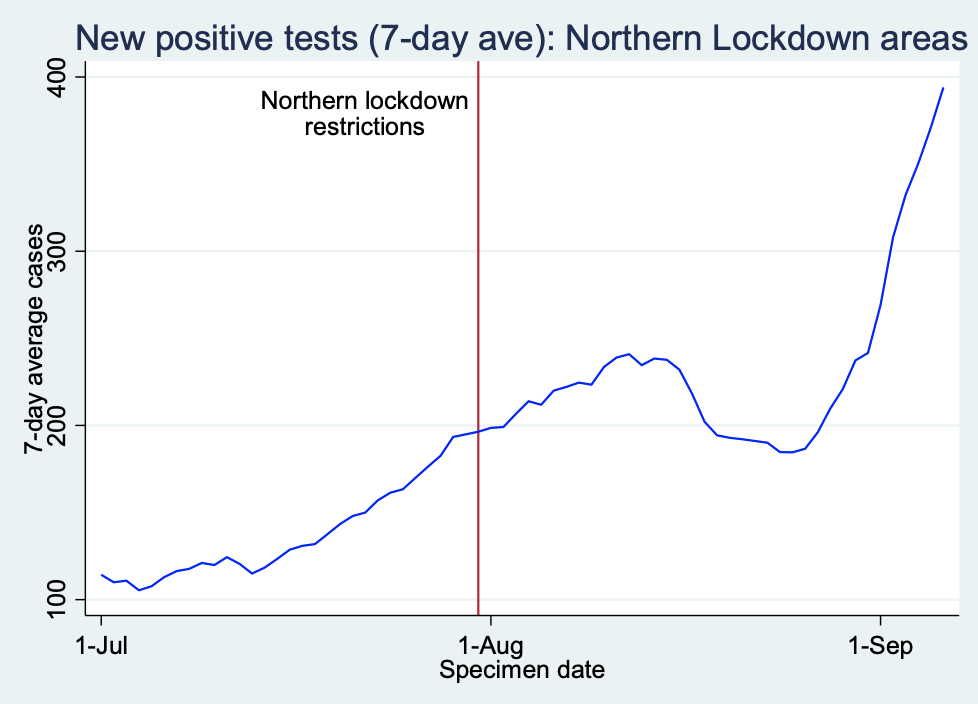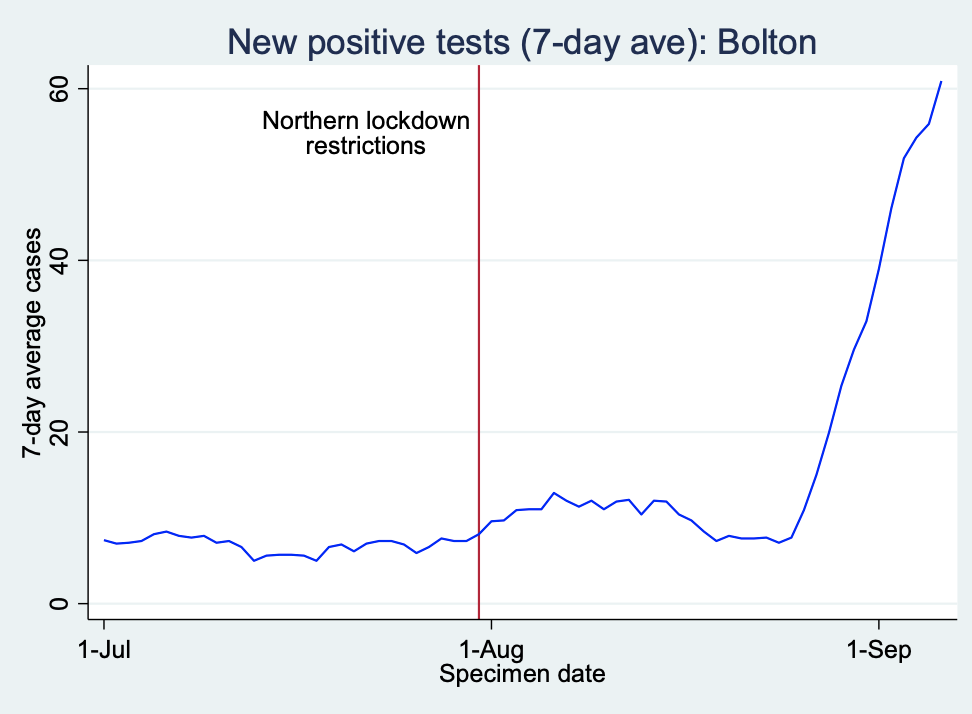There are many incomprehensible things about Boris Johnston’s new “Rule of 6”: the arbitrary number; that it applies not just inside but outside where transmission is much less likely; that babies and young children will count towards the limit in England (but not Scotland or Wales); the unnecessary hit that the hospitality sector will face when so many businesses are already on the edge; the increase in loneliness and isolation that will be felt by the elderly who will find it more difficult to meet up with families.
Less attention has been paid to whether this major restriction on people’s freedom to live their lives will actually be effective in reducing new positive tests. Let’s put to one side the argument that an increase in positive tests only matters (from a policy point of view) if it leads to hospitalisations and deaths increasing to an uncontrollable level. The Government are being guided by positive test numbers, so what is their evidence that these sorts of restrictions will lead to a reduction?
Matt Hancock and the Chief Medical Officer both cited Belgium as a country where imposing a limit on the numbers who can socialise together had led to a reduction in new positive cases. It has proved to be an unfortunate choice of example as, since their pronouncements, the Belgium figures have started increasing again and at quite a rapid rate.
But the CMO could have looked closer to home for evidence. Similar restrictions on family meet-ups have been in place in the Northern Lockdown areas since the end of July and so we have quite a lot of data to look at. It is not an auspicious picture for the “Rule of 6”. Far from stopping infections increasing, the Northern Lockdown areas have seen a much bigger recent increase in cases than the rest of the country.

Restrictions were eased in some parts of the North West from the 26th August. Given a 5-7 day period between infections and observing positive tests, that easing cannot have contributed to the rapid increase in cases that started from the 27th August. Indeed, if we look at areas like Bolton where the restrictions were tightened rather than eased, the increase in positive tests has been especially rapid.

As always, we have to be careful before drawing out firm conclusions from data when many other factors may be involved. But we can be clear that the restrictions on family meet-ups in the Northern Lockdown areas have not managed to prevent positive cases increasing.








Join the discussion
Join like minded readers that support our journalism by becoming a paid subscriber
To join the discussion in the comments, become a paid subscriber.
Join like minded readers that support our journalism, read unlimited articles and enjoy other subscriber-only benefits.
SubscribeThe rule of six is yet another pernicious infringement on civil liberties. Testing is under the most intense pressure despite having the largest per capita capacity of any country in the world with a population over 10m and has cost £10bn and rising. The media continue the sensationalist gotcha agenda and the opposition criticise in hindsight but support measures and have no real time answers. Heaven help us if the vaccine programme fails or the delivery is delayed for a significant period of time. The strategy should this happen boggles the mind.